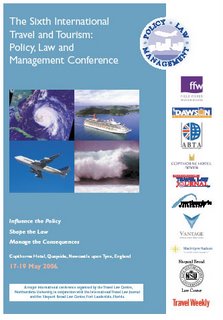The Commission has adopted Technical Specifications for Interoperability for control/command and signalling on the conventional trans-European railway network. At the moment, more than twenty different signalling and speed control systems are used in Europe, which means that most international passenger and goods trains still have to stop at the border station to change locomotive. The adopted Decision will allow these incompatible systems to be gradually replaced by a single system known by its abbreviation ERTMS (press release IP/06/404 of European Comission, see here.
(Originally posted by Michael Wukoschitz)
(Originally posted by Michael Wukoschitz)
